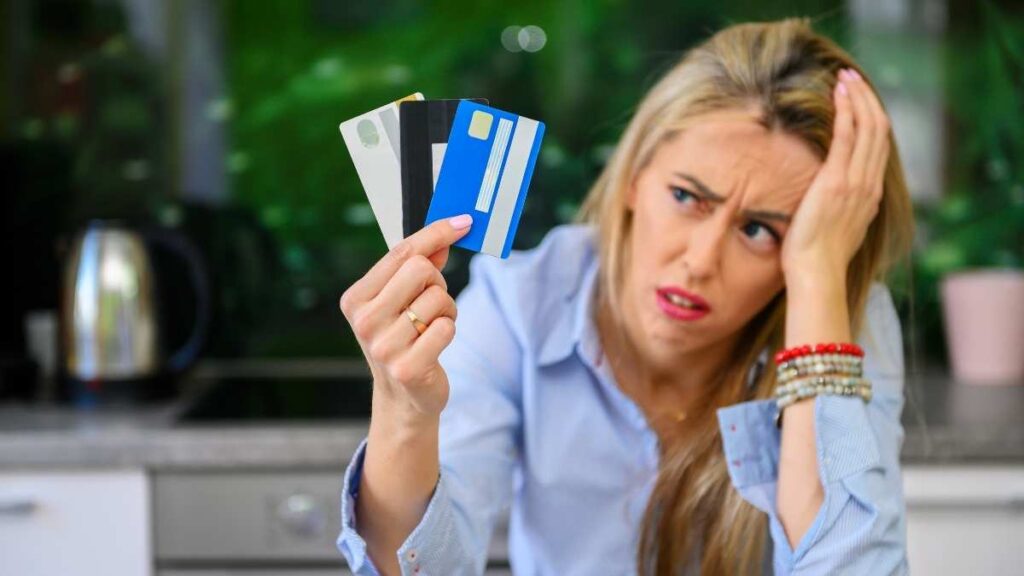If you’ve spotted a charge on your credit card statement labeled Three Square Market (or 32Market) and you don’t immediately recall the transaction, you’re not alone. Many U.S. consumers wonder what this charge means—and whether it’s legitimate or erroneous. In this guide, we’ll walk you through what the charge might represent, how to verify it, and steps you can take to resolve or dispute it, all grounded in U.S. consumer-protection standards.
Introduction
When a confusing or unfamiliar merchant name shows up on your credit card statement, it can cause alarm. Did someone use your card? Was it a hidden subscription? Or is it simply the name a vendor is using that you don’t recognize?
In the case of Three Square Market, charges may reflect purchases at micro-markets or kiosks, online deposits to a stored-value account, or even third-party billing. However, because public information about Three Square Market’s billing practices is somewhat limited, it’s important to approach any unfamiliar charge carefully. This article aims to equip you with clear, practical steps to verify and—if necessary—dispute the charge.
Note: Limited public information is available for Three Square Market as of 2025. Consumers should verify directly with their bank or the merchant if unsure.
What Is Three Square Market?
Three Square Market (often stylized as 32Market or ThreeSquareMarket) is a company based in River Falls, Wisconsin that operates micro-markets, kiosks, and self-checkout systems. OptConnect
- Their kiosks typically offer snacks, drinks, meals, and convenience items in places like workplaces, break rooms, or common areas. OptConnect+1
- On their website, they call themselves a technology-focused provider of self-checkout, kiosks, and integration software. OptConnect
- Their “Conditions of Use” page states that they accept Visa, Mastercard, and Discover cards via their online site (32market.com). 32market.com
However, here are a few crucial caveats:
- Their Conditions of Use explicitly say: “32market.com does not perform any recurring payments at this time.” 32market.com
- Because Three Square Market acts as both a kiosk operator and a technology provider, sometimes the billing descriptor may be indirect or ambiguous.
- Their system also allows customers to deposit funds in advance to an account (a “prepaid” or “stored-value” balance) which can later be used at kiosks. NASA+1
Because of that mixture of kiosk purchases and prepaid account deposits, a charge that appears in your statement may not immediately match a physical product you remember.
Why This Charge Might Appear
Here are some of the most common scenarios in which you might see a Three Square Market charge on your credit card:
1. Kiosk/Micro-Market Purchases
If you or someone with access to your card used a Three Square Market kiosk (for snacks, drinks, or meal items), the charge may appear under their billing name.
2. Depositing Funds to a Stored-Value/Account
Three Square Market kiosks allow users to deposit funds in advance to their 32Market account via credit or debit card, which are then drawn down when making purchases in the kiosks. NASA+232market.com+2 In that case, the initial “deposit” may appear as a standalone charge.
3. Third-Party or Payment Processing Naming
The actual billing name on your credit card may be mediated by a third-party payment processor. The descriptor “Three Square Market” or “32Market” may show up even though a different entity processed the payment.
4. Mistaken, Duplicate, or Erroneous Charges
It’s also possible that the charge is a duplicate, an authorization hold that was never reversed, or an error. Sometimes a merchant may inadvertently charge you twice, or a pending authorization may become permanent.
How to Verify the Three Square Market Charge
Before assuming the worst, here are steps to verify whether the charge is legitimate or fraudulent:
1. Check Your Receipts, Orders, and Email Confirmations
- Review receipts from recent purchases (physical stores, kiosks, or meal plans).
- Search your email inbox for transaction confirmations involving “32Market,” “ThreeSquareMarket,” or similar terms.
- Log in to your 32Market account (if you have one) and check transaction history or “deposit” records.
2. Ask Family, Roommates, or Authorized Users
Sometimes someone else (a spouse, child, or authorized user of your card) may have made a purchase you don’t immediately recall. It’s worth asking around.
3. Match the Date, Amount, and Location
Compare the date and dollar amount on your statement to potential matches. See if the amount roughly matches what a snack or vending purchase would cost.
4. Check for Third-Party Processor Names
If your statement shows additional words (e.g., “THREE SQUARE MARKET / XYZ PROCESSOR”), try Googling that full descriptor. Some processors forward on the merchant name in a way that’s less recognizable.
5. Contact the Merchant (Optional at This Stage)
If you can find contact information for Three Square Market or the kiosk operator, you can ask them to confirm whether that specific charge is theirs, and ask for proof (e.g., a receipt or transaction log).
If after these checks you still don’t recognize the charge or believe it may be erroneous, that’s when it’s time to escalate the matter.
Steps to Resolve or Dispute the Charge
Here’s a step-by-step roadmap to follow if you decide you need to resolve or dispute the charge. Do so calmly and methodically—your consumer rights in the U.S. give you clear protections if handled correctly.
Step 1: Contact the Merchant
- Find the contact info for Three Square Market or the operator responsible for the kiosk. The “Contact Us” page on their site or kiosk signage may show an email or phone. 32market.com+2OptConnect+2
- Explain clearly: the date of the charge, the amount, and that you don’t recognize it.
- Ask them to verify or provide proof (receipt logs, transaction ID) that ties that charge to your card.
- If it was a valid but mistaken charge, request a refund formally.
- Document all communication: dates, names, what was said, and keep any responses.
If the merchant declines, or does not respond, move to the next step.
Step 2: Contact Your Credit Card Issuer
- Call the customer service number on the back of your card.
- Tell them: “I do not recognize a purchase from Three Square Market.”
- Ask them to open an investigation or dispute of the charge.
- Some issuers will temporarily reverse or “hold” the charge pending the investigation.
- Ask about their timeline and what documentation they need from you.
Step 3: File a Formal Dispute / Chargeback
Under the Fair Credit Billing Act (FCBA) (15 U.S.C. § 1666), U.S. consumers have rights to dispute billing errors on credit cards. Some key rules:
- You must send your written dispute to the issuer within 60 days after the statement with the charge is mailed.
- The issuer must acknowledge your dispute within 30 days and resolve it within 90 days (except in special cases).
- You may withhold payment on the disputed portion (i.e., you don’t have to pay that portion while it’s under dispute).
When disputing:
- Write a dispute letter (many issuers also accept a dispute form or online submission).
- Include: your name, account number, details of the charge (date, amount, merchant name), and a statement you don’t recognize it and request reversal.
- Attach any supporting documentation (screenshots, merchant communications, receipts or lack thereof).
- Keep copies of everything.
- Follow up regularly.
Most issuers will either resolve in your favor (remove the charge) or provide justification. If the dispute is unsuccessful and you believe the evidence favors you, you can escalate further (such as escalating in the bank or considering small claims court).
Tips to Prevent Future Unknown Charges
Here are practical tips to reduce the likelihood of surprise or fraudulent charges in the future:
- Monitor statements regularly — weekly or biweekly, don’t wait until month’s end.
- Set transaction alerts — many card issuers let you receive an SMS or email for every transaction above a threshold.
- Use virtual or single-use card numbers for online or kiosk deposits (if your bank offers them).
- Freeze or turn off autopay for nonessential subscriptions you rarely check.
- Review your credit card’s “authorized user” list periodically.
- Record receipts immediately and cross-check them weekly.
- Use cards with strong fraud protection features and zero-liability policies.
FAQ
1. What is Three Square Market on my credit card?
It likely refers to transactions made at their micro-market kiosks or deposits to a stored-value account linked with their 32Market system.
2. Could this charge be fraudulent?
Yes—but it’s not necessarily fraud. Many charges arise from legitimate, memory-lapsed transactions. Verifying receipts and logs should be your first step.
3. How do I dispute a Three Square Market charge?
Contact your card issuer, tell them you don’t recognize the charge, and follow their formal dispute (chargeback) process under the Fair Credit Billing Act.
4. Can I get a refund directly from Three Square Market?
Yes. If the transaction is valid but mistaken, ask the merchant for proof and request a refund. If they refuse or ignore you, escalate to your card issuer.
5. How can I prevent future unknown charges?
Monitor statements, enable alerts, use virtual card numbers, and cross-check receipts against your transactions.
6. Will disputing a charge affect my credit score?
No—filing a dispute itself does not affect your credit score, so long as you still stay current on other required payments on the card.
Conclusion
A charge from Three Square Market (or 32Market) may be surprising—especially if you don’t immediately recall using one of their kiosks or depositing funds into a linked account. Yet U.S. consumers have robust rights and processes to verify, challenge, and resolve such charges. Your best path forward is:
- Check your records, receipts, and transaction history
- Contact the merchant and ask for clarification or a refund
- Escalate to your card issuer and formally dispute the charge
- Monitor future statements carefully and use safeguards like alerts or virtual card numbers
Staying vigilant and informed gives you the strongest position when dealing with unfamiliar charges. If you like, I can also help you by drafting a sample dispute letter or checking if your specific card issuer has a twist in their process. Would you like me to help with that?

Emma Rose is a U.S.-based personal finance writer and a regular contributor at Cardix.us. She focuses on topics like credit cards, credit scores, and everyday money management. Emma’s writing makes complex financial concepts simple and practical, helping readers make smarter credit and spending decisions with confidence.


